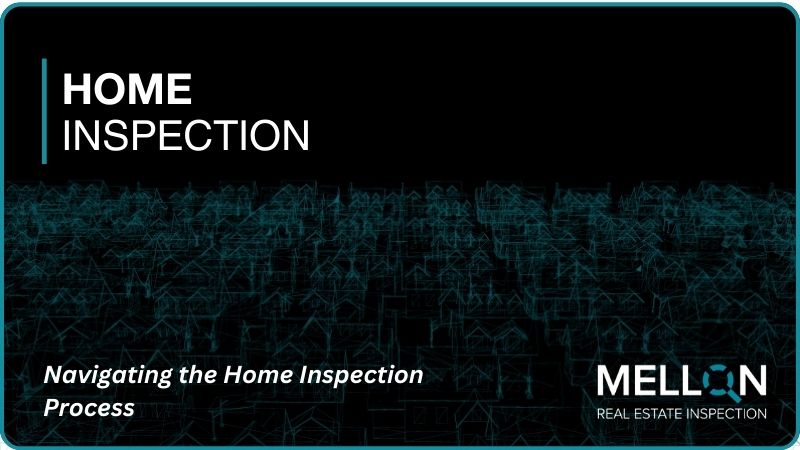Navigating the Home Inspection Process

The purchase of a residential property represents a substantial milestone in one's financial journey, but it is accompanied by a multifaceted and intricate process. At the heart of this process lies a pivotal and indispensable step: the home inspection. This critical evaluation is instrumental in gaining a comprehensive understanding of the property's condition and safety features. As you embark on your path to becoming a homeowner, it is imperative to explore the realm of home inspections, which plays a crucial role in making informed decisions within the real estate market.
Home inspections shed light on a property's hidden issues, safeguarding your investment and your family's safety. In this guide, we'll focus on three key aspects that emphasize the importance of understanding the home inspection process.
Preparation and Selection of an Inspector
Before delving into the inspection process, the first step is to prepare and select a qualified home inspector. Start by researching and seeking recommendations. A reputable inspector should have the necessary certifications and licensing. Once you've chosen an inspector, schedule the inspection at a time that suits both parties.
During the inspection, it's advisable to be present. This allows you to ask questions and gain firsthand knowledge about the property's condition. Remember, a good inspector welcomes your involvement and will provide valuable insights as they navigate through the home.
The Inspection Day
On the day of the inspection, be prepared for a thorough examination of the property. Home inspectors inspect both the interior and exterior, covering various components:
- Structural Elements: This includes the foundation, walls, roof, and ceilings. Inspectors will check for any visible signs of damage or deterioration.
- Plumbing and Electrical Systems: All faucets, outlets, switches, and the main electrical panel will be examined for functionality and safety.
- HVAC Systems: Heating, ventilation, and air conditioning systems are inspected to ensure they are operational and in good condition.
- Appliances: Inspectors will assess the condition and functionality of major appliances like stoves, ovens, and water heaters.
- Safety Features: Smoke detectors, carbon monoxide detectors, and other safety features are examined to verify their effectiveness.
The process can take several hours, depending on the property's size and complexity. It's essential to be patient and allow the inspector to do their job meticulously.
Understanding the Inspection Report
Once the inspection is complete, the inspector will provide a detailed report. This report is a critical document that summarizes their findings. It will typically include:
- Descriptions of any issues or defects discovered during the inspection.
- Recommendations for repairs or further evaluations by specialists, if needed.
- Maintenance tips to keep the property in good condition over time.
Take the time to thoroughly review the report. If significant issues are identified, you can use this information to negotiate with the seller. It's essential to differentiate between minor maintenance issues and major structural concerns. Your inspector can guide you in this regard.
Understanding the home inspection process is an integral part of the home-buying journey. It equips you with the knowledge needed to make informed decisions about your investment. Remember that a home inspection is not just about uncovering flaws; it's about ensuring the safety, functionality, and overall well-being of your future home.
As you navigate the home inspection process, keep in mind that it's a collaborative effort between you and the inspector. Be present on inspection day, ask questions, and seek clarity when needed. The inspection report is your roadmap to a secure investment. It helps you negotiate effectively with the seller and prioritize any necessary repairs or maintenance.
Ultimately, a thorough home inspection is your key to a seamless and confident home-buying experience. It transforms the often daunting task of purchasing a property into a well-informed decision-making process, allowing you to take the first step toward a future filled with comfort and security in your new home.
Written on behalf of Mellon Real Estate Inspection.
FAQ
A home inspection is a thorough assessment of a property's condition. It's necessary to uncover hidden issues and ensure the property is safe and sound.
Yes, it's advisable to be present. Your role is to ask questions, gain insights, and understand the property's condition to make informed decisions.
Expect a thorough examination of the property, covering structural, electrical, plumbing, HVAC systems, and more. The duration varies but may take several hours, depending on property size and complexity.
Streamlined, Efficient, and Reliable
At Mellon Real Estate Inspection, we ensure that we meet, and exceed your inspection requirements, thanks to our enhanced and efficient services and technologies. We are here to guide your project across the finish line according to your timeline and augment your real estate inspection needs with our exceptional repertoire of knowledge and insight.
Contact us today at 1-403-993-8006, or fill out the form below, and let’s get started on your inspection.


